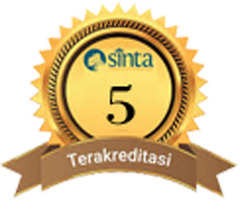URGENITAS KEPEMIMPINAN KEPALA SEKOLAH DALAM PENINGKATAN KOMPETENSI SOSIAL DI SEKOLAH MENENGAH
DOI:
https://doi.org/10.22373/fitrah.v4i2.2348Keywords:
Leadership, Principal, Social competence, TeacherAbstract
The leadership of the school principal in improving the social competency of teachers is something that is urgent in schools, because the principal as the top leader determines the progress and decline of a school organization. But also the social competence of teachers can be influenced by the principal's leadership style, strategies and policies in increasing these competencies. This study aims to reveal: 1) leadership styles, 2) policies and strategies, and 3) challenges and opportunities from school principals in strengthening teacher social competence. The approach uses a qualitative type of descriptive research with data collection techniques using observation, interviews and documentation techniques. The research subjects were the school principal, deputy head of administration, and two teachers at SMP IT Nurul Ishlah. Data analysis was carried out through data reduction, data presentation and drawing conclusions. The validity of the researcher's data uses credibility, transferability, dependability and confirmability. The results of the study obtained that: the principal's leadership style, has a democratic leadership style and a charismatic leadership style. Principal strategies and policies by communicating politely and harmoniously by applying the principle of brotherhood to the teacher council, students, parents and the surrounding community, conducting training and seminars for teachers in order to improve social competence and teacher insight. Motivating teachers to be passionate about innovating and developing quality as educators, creating programs to strengthen teacher relationships with fellow teachers, students, parents of students and the community environment. While the challenges and opportunities for approaching are due to the diversity of backgrounds, the age of the teachers at school, and the opportunities for strengthening them by being invited to work together to improve quality and involve all school members in social and integrity actions
References
Undang – Undang Republik Indonesia Nomor 14 Tahun 2005, tentang kompetensi guru dan dosen
E. Mulyasa, (2009), Standar Kompetensi dan Sertifikasi Guru, Bandung: PT Remaja Rosdakarya.
Syaiful Sagala, (2011), Kemampuan Profesional Guru dan Tenaga Kependidikan, Bandung: Alfabeta.
Bambang Syamsul Arifin, (2015), Dinamika Kelompok, Bandung: CV Pustaka Setia.
Connie Chairunnisa, (2015), Manajemen Pendidikan dalam Multi Perspektif, Jakarta: PT RajaGra findo Persada
Jerry H. Makawimbang, (2010), Kepemimpinan Pendidikan Kepemimpinan Pendidikan Yang bermutu, Jakarta: Alfabeta
Helmawati, (2014), Meningkatkan Kinerja Kepala Sekolah/Madrasah Melalui Managerial Skills, Jakarta: PT Rineka Cipta.
E Mulyasa, (2005), Menjadi Kepala Sekolah Profesional Dalam Konteks Menyukseskan MBS dan KBK, Bandung; PT Remaja Rosdakarya.
Sudarwan Danim, (2012), Pengembangan Profesi Guru, Jakarta: Kencana Prenada Media Group.
Mappanganro, (2010), Pemilikan Kompetensi Guru, Makassar: Alauddin Press.
Suyanto, Asep Jihad, (2013), Menjadi Guru Profesional, Jakarta: Erlangga
Downloads
Published
How to Cite
Issue
Section
License
Authors who publish in this journal agree to the following terms:
- Authors retain copyright and grant the journal right of first publication with the work simultaneously licensed Attribution-NonCommercial-ShareAlike 4.0 International (CC BY-NC-SA 4.0) that allows others to share the work with an acknowledgment of the work's authorship and initial publication in this journal.
- Authors can enter into separate, additional contractual arrangements for the non-exclusive distribution of the journal's published version of the work (e.g., post it to an institutional repository or publish it in a book), with an acknowledgment of its initial publication in this journal.
- Authors are permitted and encouraged to post their work online (e.g., in institutional repositories or on their website) before and during the submission process, as it can lead to productive exchanges and earlier and greater citation of published work. (See The Effect of Open Acces)









